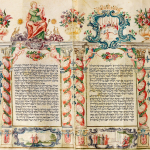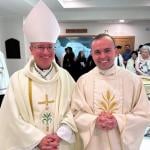This segment concludes the three part series of discussions on the diaconate and the possibility of women deacons.
Curious about the other two parts?
Here:
Part One: “The Diaconate: History and Present Practice”
Part Two: “Women Deacons and the Papal Commission”
One point I’ll add about this third segment: it opens with a discussion about salaries and how, in the view of one of the panelists, women deacons might help address inequities in what women are paid in the Church.
Watching this now, I realize I missed an opportunity to bring up this salient but critical point: in the vast majority of parishes, deacons are not paid. We are, in effect, volunteers. There is no salary attached to the job. We don’t receive stipends for Masses or celebrating sacraments such as Baptism or Marriage. I’m not sure a lot of lay people understand that, and I regret that I didn’t make that point.
I also should have done a better job underscoring the differences between lay ecclesial ministers and deacons. (Including, but not limited to, the ongoing process of discernment that takes place during formation and the sacramental mark/permanence of the ordained state.) But time was limited, I didn’t want to monopolize the conversation and, clearly, my brain wasn’t up to the task.












